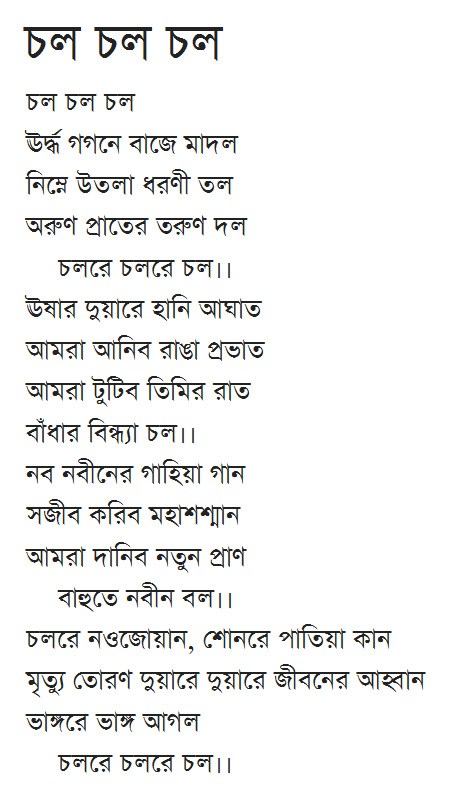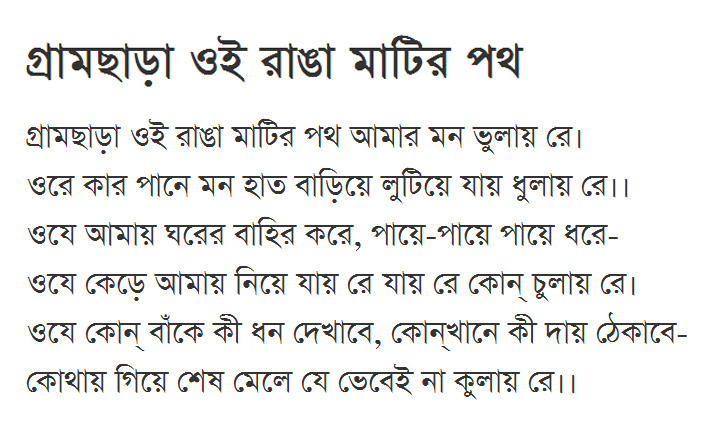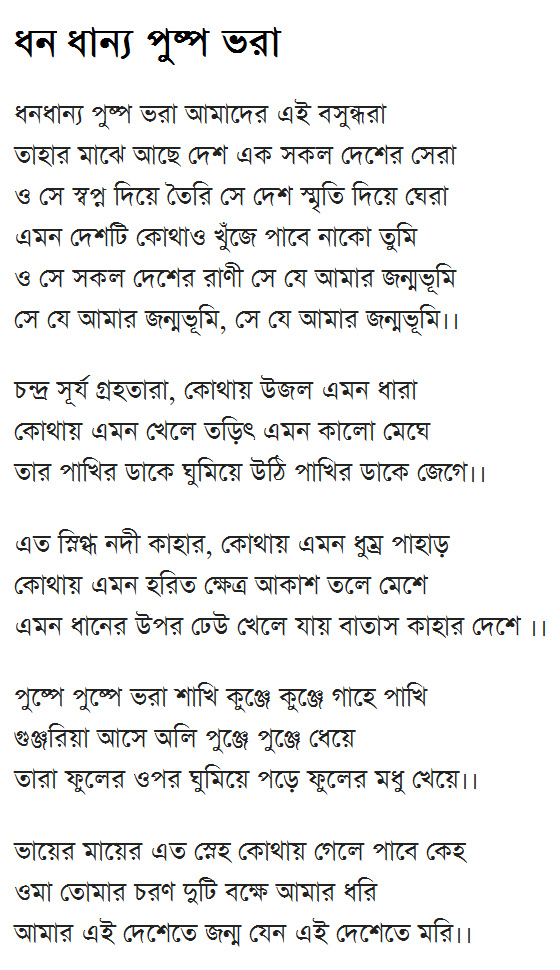
Fiercely proud Bengali who actively fought for greater participation of Bengali and encouraged Bengali culture
Last updated: 10 October 2017 From the section Muhammad Ataul Ghani (M. A. G.) Osmani (Bangabir)
Lovingly called "Papa Tiger" and "Chacha Osmani"
Because of his leadership and farsightedness Osmani became the father figure, not only for the Bengal regiment but also for the Bengali personnel of other services. He was affectionately known as "Papa Tiger" in the Pakistan army.
Many of the officers and muktijuddhas (freedom fighters) during the Bangladesh Liberation War also lovingly called him "Chacha Osmani" (Uncle Osmani).
Known as the 'Papa Tiger' because he was Colonel-in-Chief of the Bengal Regiment, Osmani was an old-style officer and a gentleman who lived by the Military Manual.
Anthony Mascarenhas, author of "Bangladesh - A Legacy of Blood" (1986)
Nicknames 1st EBR as "Bengal Tigers", speaks with them in Bangla and trains them intensely to achieve excellence
M. A. G. Osmani nicknamed the East Bengal Regiments the "Bengal Tigers". He was also multilingual and made the officers feel at ease by talking with them in the language they were most competent in. Thus, Osmani communicated to the Bengali troops in Bangla, the officers in English, and to the JCO in Urdu.
It was a deliberate policy of the Pakistani government that Bengalis will be kept out of the armed forces. All sorts of impediments were created to implement a policy of discrimination.
Osmani was struggling from the very beginning to raise new Bengali regiments right from 1940 even during British times.
Finally when the East Bengal Regiment was raised, picture of a tiger featured in the monogram attached to the cap and badge. Because of this tiger logo Punjabi generals would sometime tease Osmani "Oh Osmani, you have finally become a tiger". It was said with some sarcasm. We even heard Ayub Khan calling Osmani "Tiger Osmani, Tiger Osmani".
The Pakistani seniors did not like his Bengali conversation and wanted him to use Urdu, but Osmany did not falter. He explained that Bengali was an accepted national language. Rather, Punjabi officers should avoid using Punjabi with the Punjabi troops as that was only a regional language. This was considered arrogance by the authorities, that cost him his promotion and career. But that made him a bold nationalist leader in the eyes of rank and file of Bengalis, and they were proud of him.
He also ordered the NCOs to submit the daily situation report in Bangla. These obvious displays of Bengali culture did not sit well with the Punjabi top brass, who were irked by this adoption of what was in their view Hindu culture. Osmany characteristically stuck to his guns, and stubbornly carried through the said reforms after the GHQ approved his suggestions. In doing this, he repeatedly clashed with the Punjabi chauvinists, and began gaining reputation as a hard-nosed, stubborn officer with Bengali nationalistic inclinations.
After taking over 1 EBR in Jessore, Osmani got down to business with all his heart and soul. He was waiting for this moment and did not waste any time. He envisioned that soon, the question of mixing the EBR would be lurking so he started to prepare right away. He chalked out a scheme to reach his desired goal by developing professional excellence amongst the troops by a very difficult and rigorous form of training. He prepared them for extreme climatic conditions pertaining to West Pakistan.
He trained them for extreme cold climate by exposing them bare-bodied at the peak of winter here in East Pakistan for prolonged period. He paid full attention to their health, PT (personal training), parade, drill, exercises, even games and sports. He engaged himself to develop physical and morale strength of the entire battalion, not a particular company or platoon. Once he achieved his mission of creating the highest standard of physical fitness, Osmani focused his concentration to instil in them with a sense of pride and confidence. He knew that this he could do so by stimulating their patriotism and nationalism.
Introduce Bangla songs 'Chol Chol Chol', 'Gram Chara Oi Rangamatir Path' and 'Dhono Dhanno Pushpe Bhora' as regimental songs
Muhammad Ataul Ghani Osmani introduced Bengali songs as the regimental marching and band songs. He introduced "Chol Chol Chol" (Lets Go! Go! Go!) of Bengali "bidrohi kobi" (rebel poet) Kazi Nazrul Islam – later a national poet of Bangladesh - as the marching song of the Bengal Regiments. He also introduced Rabindranath Tagore's "Gram Chara Oi Rangamatir Path" and Dijendralal Rai's "Dhono Dhanno Pushpe Bhora" with full military band for the Bengal regiment. Both Rabindranath Tagore and Dwijendralal Rai (also known as D. L. Rai) are Bengali Hindus who were known for being openly patriotic and passionate Bengalis. Tagore wrote the national anthems for India ('Jana Gana Mana') and Bangladesh ('Amar Shunar Bangla') whilst D. L. Rai was known for his Hindu mythological and nationalist historical plays and songs.
"Chol Chol Chol" by Kazi Nazrul Islam
"Gram Chara oi Rangamatir Path" by Rabindranath Tagore
"Dhono Dhanno Pushpe Bhora" by Dwijendralal (or D. L.) Rai
In 13 January 1972, the ministry of Bangladesh adopted "Chol Chol Chol" as a national marching song on its first meeting after the country's independence. Today it’s the national military song of Bangladesh and is usually played at any military ceremony or function.
He [M. A. G. Osmani] triggered an ethos of Bengali nationalism in the mind-set of the officers and other ranks of Bengal Tigers years before. That sprit and enthusiasm of nationalism subsequently found its application in the 1971 Liberation War.
 Rabindranath Tagore ()
Rabindranath Tagore ()  Kazi Nazrul Islam ()
Kazi Nazrul Islam ()  Dwijendralal (D. L.) Rai ()
Dwijendralal (D. L.) Rai ()
Introduces Hindu folk dance Bratachari as regimental dance for 'Tigers'
If that was not enough to rile his superiors, Osmani also selected the Hindu folk dance Bratachari as the regimental dance for his 'Tigers'. The Bratachari dance is a fundamental part of the Bratachari Andolon (or Vow Pursuer Movement) which was initiated by Gurusaday Dutt, a civil servant, folklorist, and writer in 1932 seeking spiritual and social improvement in India. It was popular in Bengal at that time.
The Bratachari Movement aimed at creating a sense of universality as well as national awareness among people, irrespective of caste, religion, sex and age. The movement aimed to nurturing the mind and the body and to encourage people to work for national and individual improvement through encouraging traditional and folk culture, especially folk dance and folk song. The Bangla Bratachari Samiti, set up by Gurusaday, helped to spread the ideology of the movement to Europe.
The bratacharis, or followers of the movement, pledged themselves to build their moral fibre and serve the country on the five principles of knowledge, labour, truth, unity and joy. They also undertook to perform good deeds and strengthen fellowship and to develop the mind and body through dance.
 Gurusaday Dutt ()
Gurusaday Dutt ()
Last post: Deputy Director Military Operations (DDMO) at Pakistan Army GHQ at Rawalpindi
From December 1955 as General Staff Officer Grade-1 (GSO-1) of the army Osmani worked as Senior Advisor at CENTO (Central Treaty Organization) Headquarters in Baghdad, Iraq, as part of the Pakistan Military delegation. CENTO was formed in 1955 by Iran, Iraq, Pakistan, Turkey, and the United Kingdom with the objective of mutual cooperation and protection, as well as non-intervention in each other's affairs. Osmani continued in his advisory role until May 1956 when he was promoted to Acting Colonel and joined the Pakistan Army GHQ at Rawalpindi in West Pakistan as Deputy Director of the General Staff and subsequently Deputy Director Military Operations (DDMO) under Major-General Yahya Khan. He served in this capacity for the next 10 years until his retirement. He also the Officiating Director of Military Operations as Acting Brigadier for one month (August-September) in 1957.
During the first decade of his career he had reached the rank of Colonel, during the next decade Osmani was not destined to get a single promotion.
Colonel Osmani had served under (then) Brigadier Gul Hassan Khan in 1964, when he was the DDMO (Deputy Director Military Operations) and Gul Hassan was the DMO (Director Military Operations). Although Brigadier Hasan was Osmani 's junior, he held the senior post. Hasan had given a good confidential report about Osmani, and felt that Osmani was not given promotion despite having some excellent qualities. Gul Hassan allowed Osmani time to concentrated on issues concerning the Bengal regiments, partly to keep him occupied and partly because the top brass was bypassing Osmani.
Death of father Khan Bahadur Mofizur Rahman during Hajj
Sadly, it was during this time that Osmani lost his father.
While performing the holy Hajj on 10 June 1956, Khan Bahadur Mofizur Rahman died and was buried in the sacred graveyard near Jabal-E-Rahmat in Arafat, Saudi Arabai. Osmani was deeply shocked by the sudden demise. The newly promoted Colonel could not wait and took one month advance leave from the military. Finally in 1957 he went to Saudi Arabia to visit his father's grave. He performed Umrah to seek blessings of Allah Almighty for the departed soul.
Visit to the grave of his father and performance of Umrah brought about a sea of change in his personal life and spiritual orientation. He decided to give up all that did not strictly conform to Islamic way of life. He became a devout Muslim and ardent devotee of Allah.
General Osmani rediscovered his spiritual roots. His ancestors were saints. He became fully conscious of his origin. He was totally a changed man. His Muslim identity was once again fully revived. Bengali identity and Muslim identity seamlessly merged in the consciousness of Osmani. Consequently his personal life and professional life took a momentous turn. Five time daily prayer and daily reading of the Holy Qur'an became a part of his life. He did not miss payment of Zakat and fasting in the month of Ramadhan. In his retired life he used to perform the Eid prayers in the Shahi Eidgah established by his family in his village home of Dayamir. He also frequently visited the Dargah of Hazrat Shah Jalal (RA) in Sylhet.
Lt. Col. Dewan Mohammad Tasawwar Raja
Ayub Khan rejects Khairat Hossain's proposal to increase Bengal regiments from 2 to 20
In 1957, Khairat Hossain of Rangpur, who was a state minister of defence and a member of 'Shorbodolio Kendrio Rashtrobhasha Kormi Porishod' (All-Party Central State Language Action Committee) during 1952 Bhasha Andolon which campaigned for Bangla as a state language, sent a written recommendation to Prime Minister Suhrawardy that the number of Bengal regiments be increased to 20. Till then there were only 2 Bengal regiments, the same two raised by Muhammad Ali Jinnah. The minister argued that Bengalis constituted more than half of the population and were not represented in the army commensurate with their population, which was against the basic principle of democracy.
The Punjabi conspiracy was always afoot to stop any further raising of Bengal regiment and also to mix the present two Bengal regiments.
...The file went to the Commander-in-Chief, General Ayub Khan. Usually, the file should have first gone to the directors concerned and the principal staff officers (PSO). But Ayub Khan intercepted and wrote in his usual bold hand: "In this situation when danger from India to our sovereignty is lurking in the corner, we cannot experiment with questionable material, i.e. the Bangalis, for the army”.
It won't be out of place to relate here that later in the 1965 war against India, 1st East Bengal defended Ayub's motherland - the Bedian sector of Pakistan more valiantly than any regiment of Punjab. 1 Bengal was awarded with 17 gallantry decorations, the highest number of awards received by a single battalion in the 1965 war.
 Khairat Hossain ()
Khairat Hossain ()
Role in the 1965 Indo-Pak War
Despite being the Deputy Director of Military Operations (DDMO) during the 1965 Indo-Pak War, Osmani was sidelined by the Pakistani Generals. Instead he preoccupied his time by concentrating on issues relating to the development of the East Bengal Regiments. Nevertheless, Osmani did complain that the Pakistan Press suppressed the gallant achievement of his old unit, 1 EBR, who were posted at Kasur during the War. Under the command of Lieutenant Colonel A. T. K. Haque, a fellow Bengali, the battalion won a total of 17 gallantry awards (including 2 Sitara-i-Jurat and 9 Tamgha-i-Jurat) - the highest number of awards won by any Pakistan Armed Force unit engaged in that conflict.
Successive COs (Commanding Officers, both Bengali and non-Bengali) of 1 EBR had built on the foundation Osmani had laid...
Osmani visited the unit and recommended Nishan-i-Haider for a member, and he was reportedly furious when the Battalion CO declined to support his recommendation. However, he arranged reunions for Bengal regiments alumni, and took every opportunity to enhance the reputation of Bengali units in the Pakistan army. His hard core principles, his fierce loyalty and integrity, and determination to improve the standards of all Bengali personnel in the Pakistan army and his willingness to take on anyone who differed with him earned him quite a degree of honor and prestige.
Following the war, Osmani chaired the committee which was tasked with determining army reserve and logistical requirements for future conflicts. From the last half of 1965 to April 1966 Osmani was selected as the President of the Army Sports Control Board. He devoted himself to the role and within a short period brought improvement and the Army Hockey Team became national champion in 1966.
Retirement after nearly 30 years of military service
On 16 May 1966 Osmani went on leave prior to retirement (LPR). Osmani's successor as DDMO was the then Colonel Rao Farman Ali - another person destined for infamy in Bangladesh in 1971. Colonel Farman Ali, who was one of the key mastermind during the massacre of the Bengalis during 'Operation Searchlight' in 1971, was shocked at the ill treatment of such a senior, loyal and humble officer.
Farman was reportedly horrified upon seeing how Osmani was treated in the Pakistan army. His office was totally run down, Osmani was kept out of the loop and purposefully neglected, even the office help treated him with disdain. Osmani had not been promoted because he was a Bengali and was deemed untrustworthy by the high command.
On 16 February 1967 Osmani retired from the Pakistan Armed Forces after a glittering career expanding nearly 30 years.
 Rao Farman Ali ()
Rao Farman Ali ()
Promoted only once in 19 years in Pakistan Army
Colonel Osmani joined Pakistan Army in 1947 and was made Lieutenant Colonel immediately. He worked for them for next 19 years. During this long period he received only one promotion: he was made a full colonel.
It was Osmani who was accredited with these successes and achievements, having laid the foundation for this spirit of self-sacrifice and exemplary standard of physical fitness and military excellence. That cost him dearly in terms of his career, but Osmani was firm and determined. Ayub offered him lucrative civilian positions after his retirement but Osmani turned down all the offers as he did not find it befitting to receive any favour from the authority that had punished him for his principles and high code of conduct.
Those days we used to hear about a Bengali officer named Colonel Osmany. He had come to Dhaka on leave at the beginning of the 1960s. He was from Sylhet, but spoke in English. He talked to us for a long time. He encouraged us Bengali boys and girls of East Pakistan to join the armed forces.
I said quietly "What's the use of joining the military, we'll meet your fate. You have not received any promotion". He responded laughing, "Little man, do you know I was the youngest major in the whole British army". I said, "That was still worse! You were the youngest major in the British army and in so many years you have not had any promotion? Only two promotions!". His firm reply was "That is why East Pakistanis must join the Pakistan armed forces in very large numbers".
Dr. Zafarullah Chowdhury, founder of Gana Shashtha Kendra



